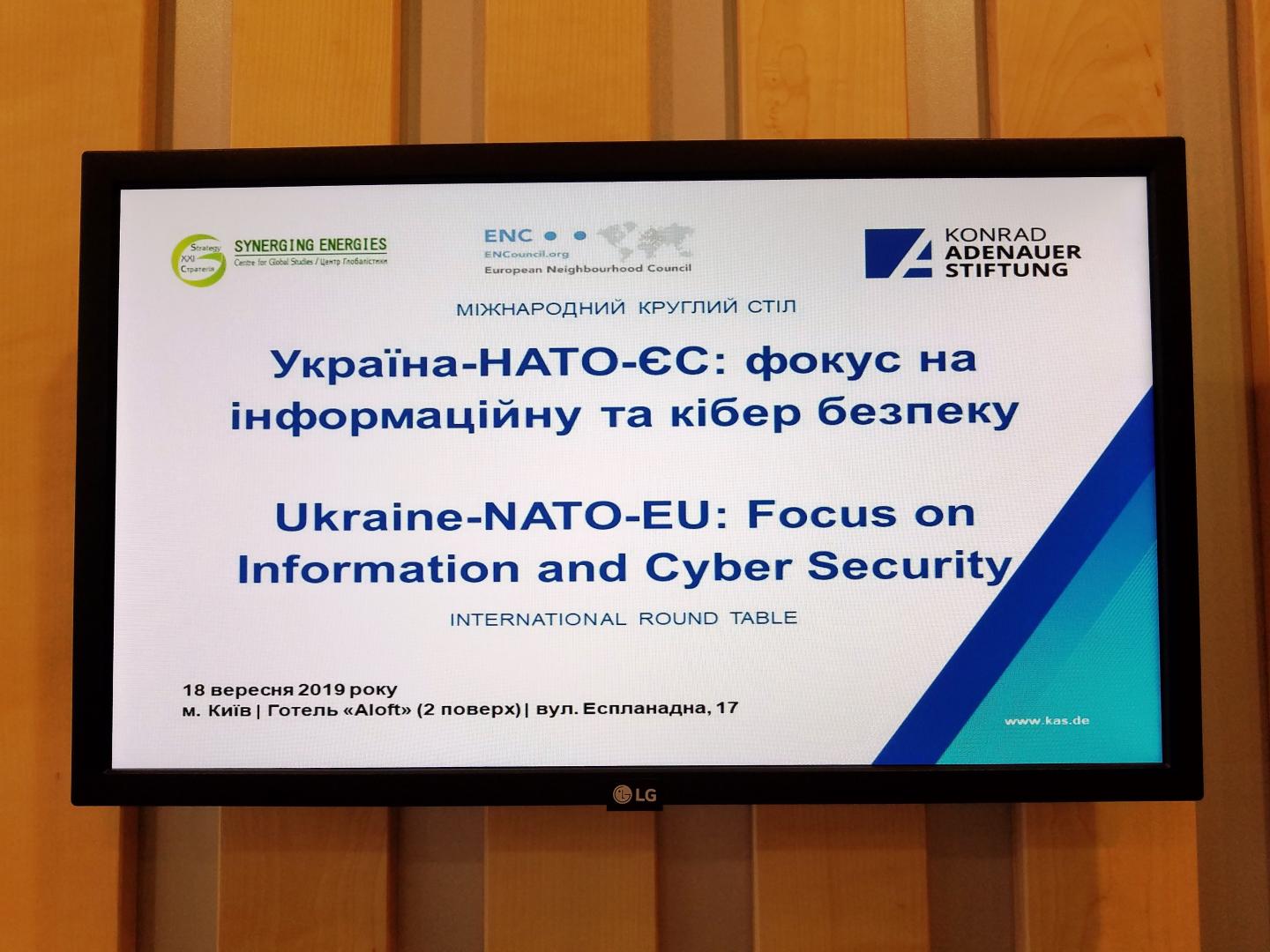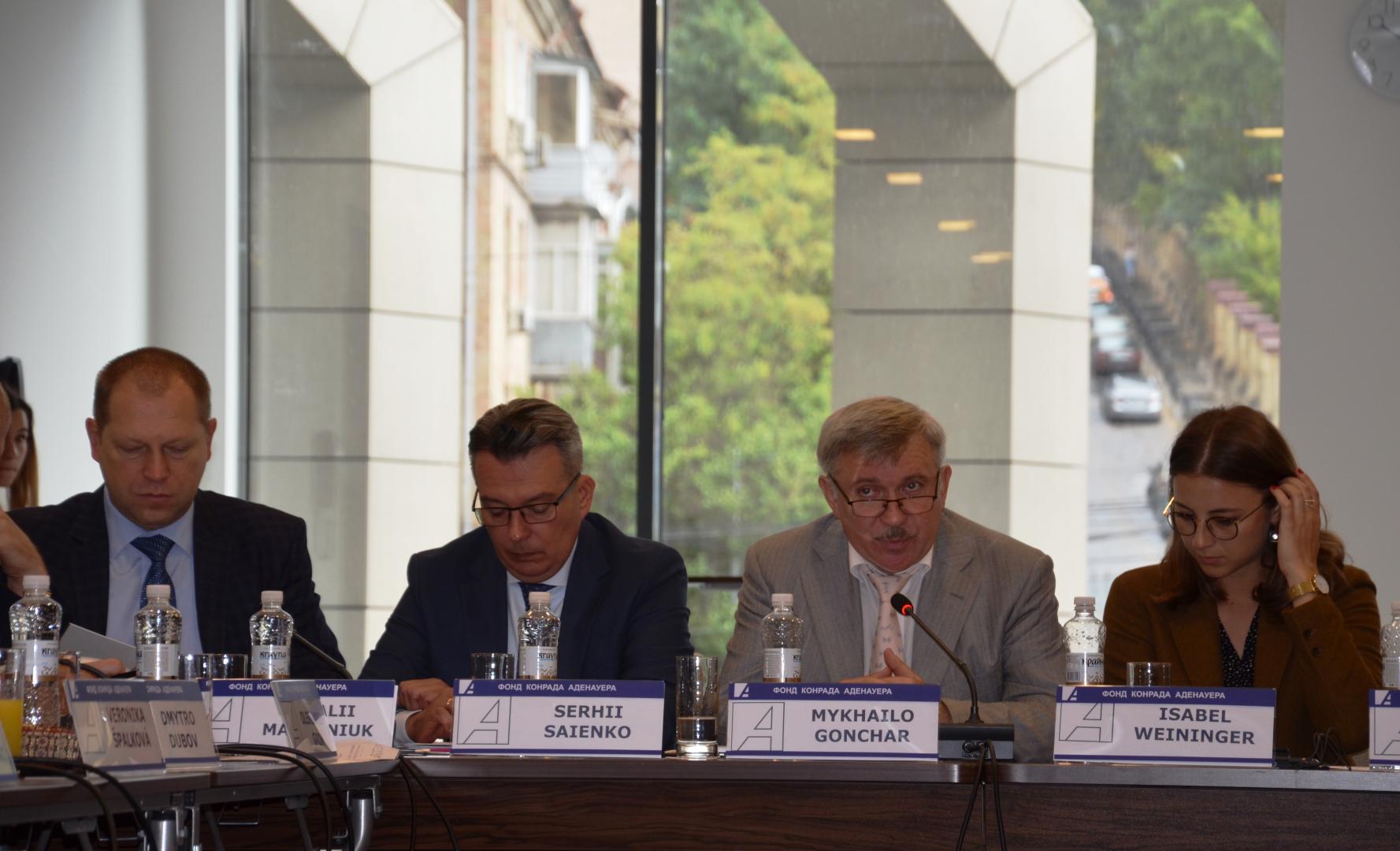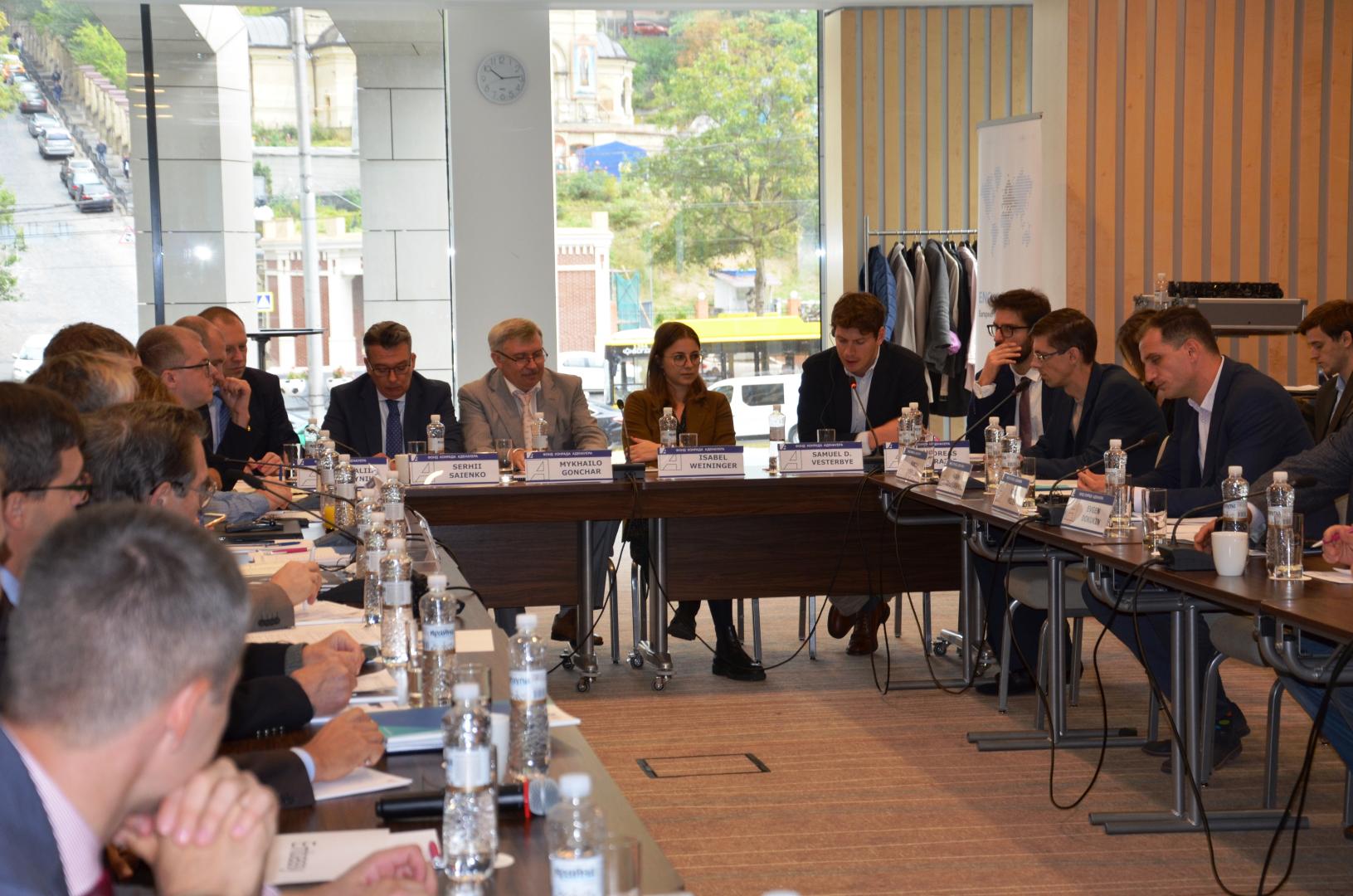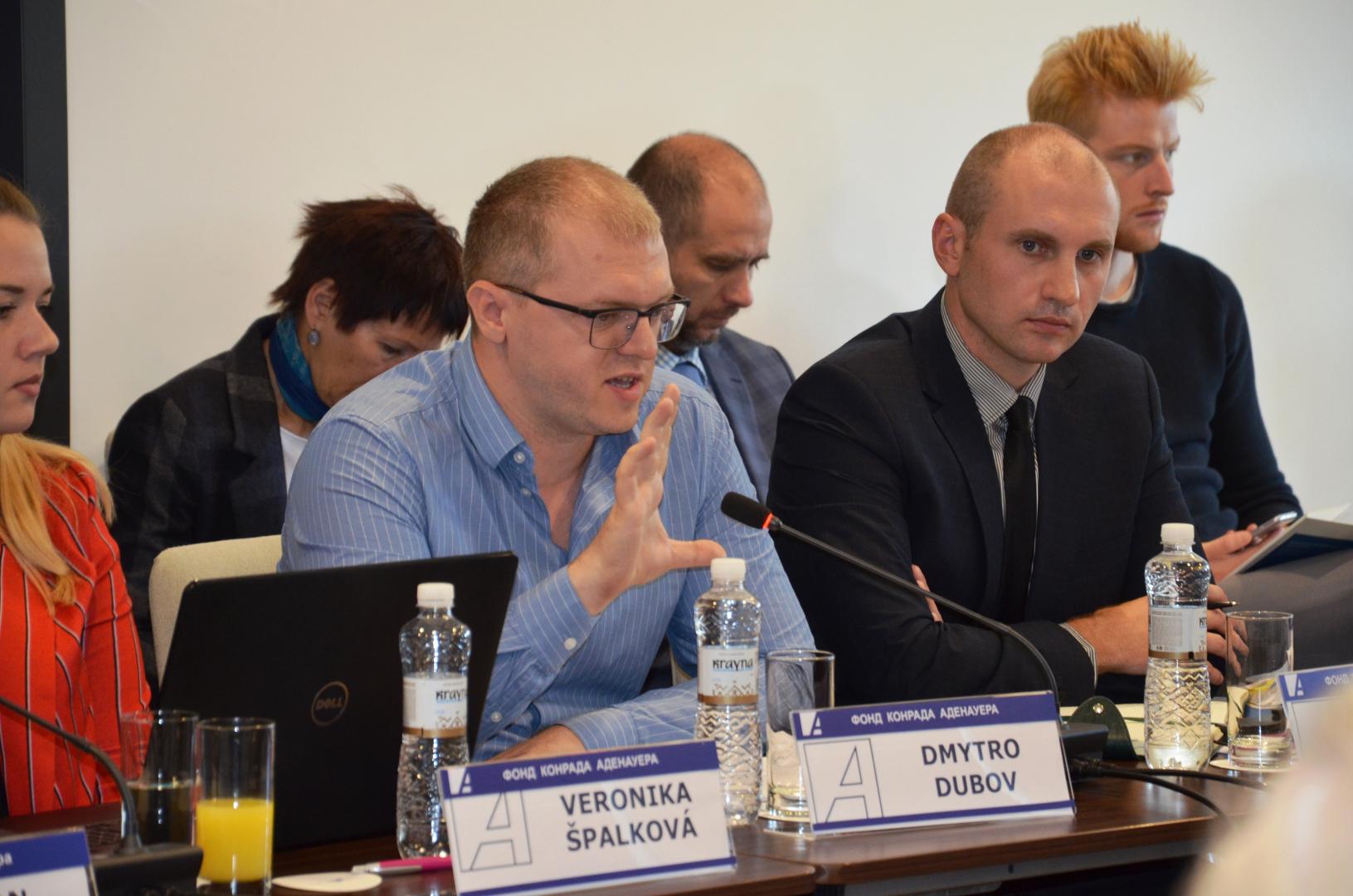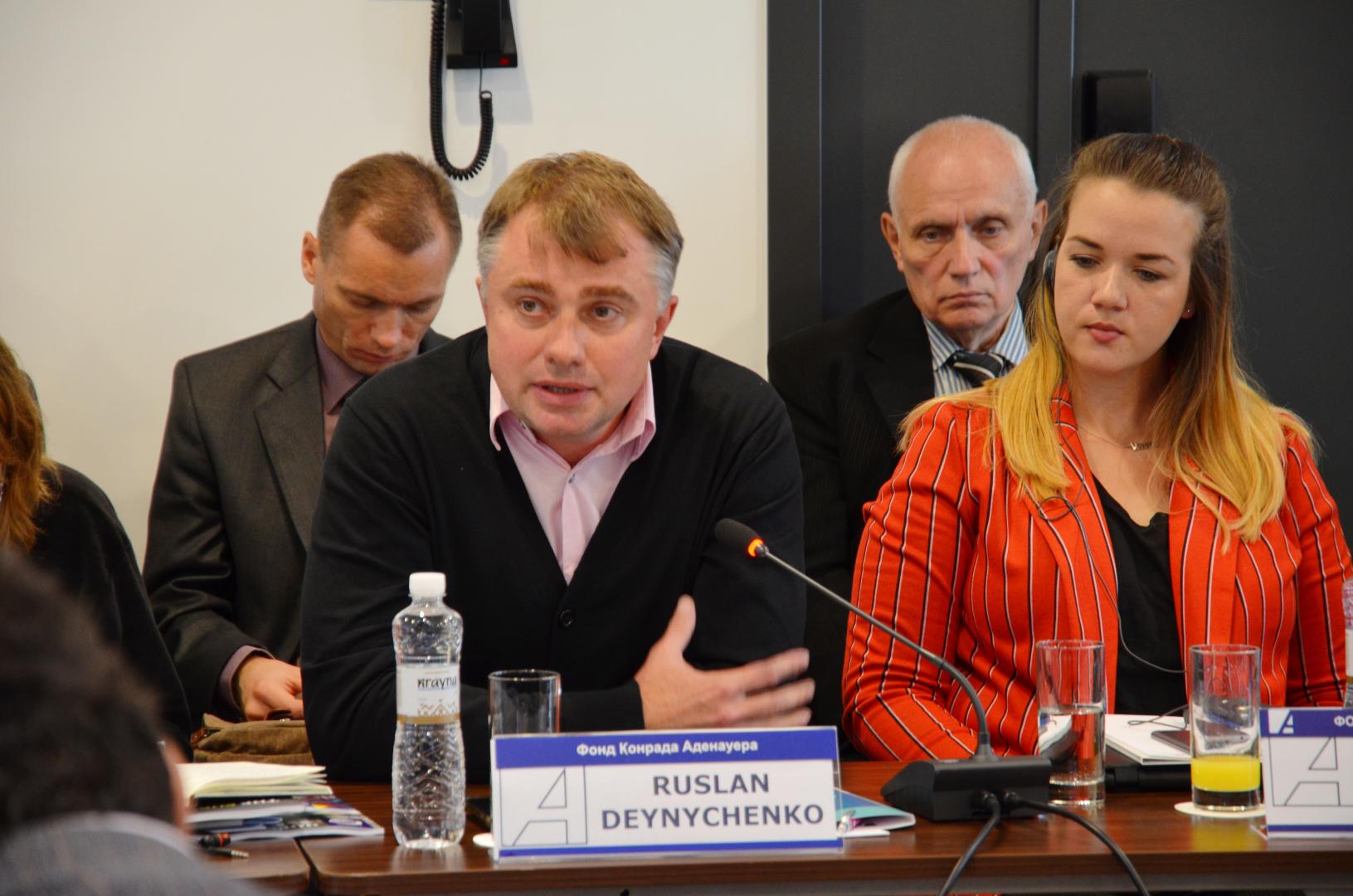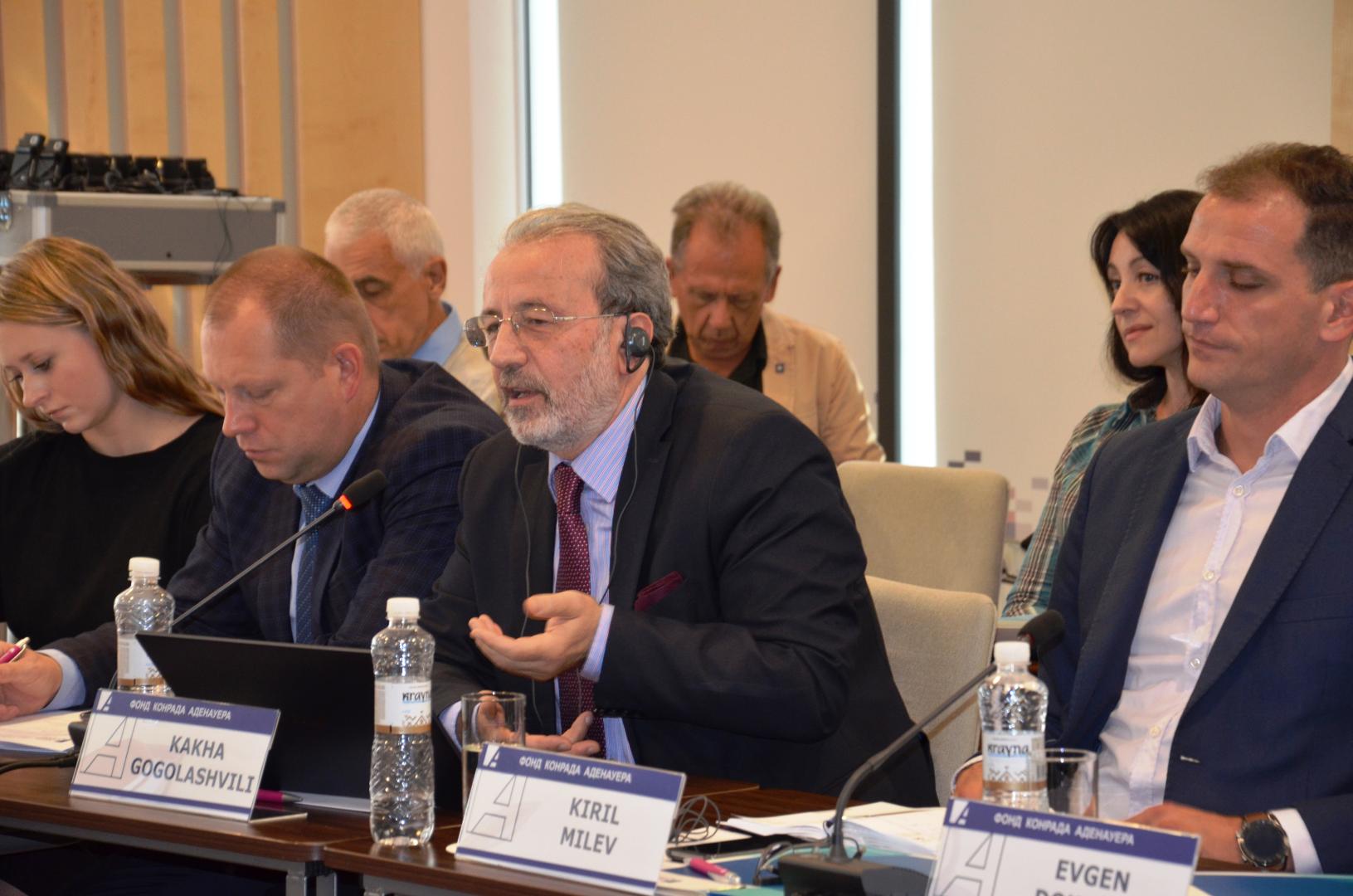Centre for Global Studies \"Strategy XXI\"
International Round Table "Ukraine-NATO-EU: Focus on Information and Cyber Securiy", Kyiv, 18. Sept. 2019
Opening session, L to R: Vitalii Martyniuk (Centre for Global Studies Strategy XXI), Serhii Saienko (Ministry of Foreign Affairs of Ukraine), Mykhailo Gonchar (Centre for Global Studies Strategy XXI), Isabel Weininger (KAS Ukraine)
International Round Table "Ukraine-NATO-EU: Focus on Information and Cyber Securiy", Kyiv, 18. Sept. 2019
Discussion panel 1. Information security in the EU, EaP, NATO and Ukraine – key direction of countering hybrid threats, L to R: Dmytro Dubov (NISS), Oleksandr Gain (Ministry of Defense of Ukraine)
Discussion panel 1. Information security in the EU, EaP, NATO and Ukraine – key direction of countering hybrid threats, L to R: Ruslan Deynychenko (StopFake), Veronika Špalková (Kremlin Watch)
Discussion panel 2. The EU-NATO cooperation with Ukraine and other EaP countries for countering cyber threats. L to R: Vitalii Martyniuk, Kakha Gogolashvili (Georgian Foundation for Strategic and International Studies), Kiril Milev (EUAM)
The discussions main focus was the security cooperation between Ukraine-EU-EaP-NATO, the cooperation within the EaP when countering hybrid threats and the challenge of safeguarding information and cyber security in an era of hybrid warfare. Other than that, central issues for debate were the Kremlin’s propaganda and cyber threats that reach beyond Ukraine, having a direct impact on the EU, EaP and NATO countries and their cooperation for common resistance. The aim was to talk about new ways on how to strengthen Ukraine's interaction with the EU and NATO in countering information and cyber threats.
After welcoming remarks by the co-organisers, the first panel was opened by pointing out that hybrid threats need to be dealt with by responding jointly, by further developing a strategic communications dialogue with European Institutions and that Ukrainian law need to be brought in line with European standards. Throughout the discussion several speakers where calling for a legal reform concerning cyber threats, since the public authorities only work within outdated legal frameworks, they cannot respond efficiently within the frame of the current legislation.
Another point of discussion was the internal cooperation of different stakeholders in the country, the involvement of civil society. Debunking fake-news alone is not sufficient if civil society is not given an alternative to influenced media. Media literacy education could be the right response, but it should be directed not only at students but also at the elderly since they constitute a significant part of the Ukrainian electorate and are often forgotten in discussions about countering disinformation.
As a recurring problematic, speakers brought up the ineffectiveness of public counteraction to cyber threats. On the one hand, it is due to the low level of responsibility for cybercrime in Ukraine and the existence of legal barriers to more effective cyber police investigations. On the other hand, Ukraine needs to improve its cyber legal framework in the form of adaptation to EU rules and the Budapest Convention on cybercrime.
As positive developments, the increasing engagement of EU countries and the fact that EU acknowledges the problematic in its full scope was pointed out. Common strategies are really good instruments and that can be realised by including an implementation plan in the future.
After a fruitful Q/A session, the round table was concluded by thanking the partners for cooperating and by emphasizing the importance of future cooperation in the field of information and cyber security.
Author: Annika Ruge, intern
Topics
About this series
The Konrad-Adenauer-Stiftung, its educational institutions, centres and foreign offices, offer several thousand events on various subjects each year. We provide up to date and exclusive reports on selected conferences, events and symposia at www.kas.de. In addition to a summary of the contents, you can also find additional material such as pictures, speeches, videos or audio clips.



